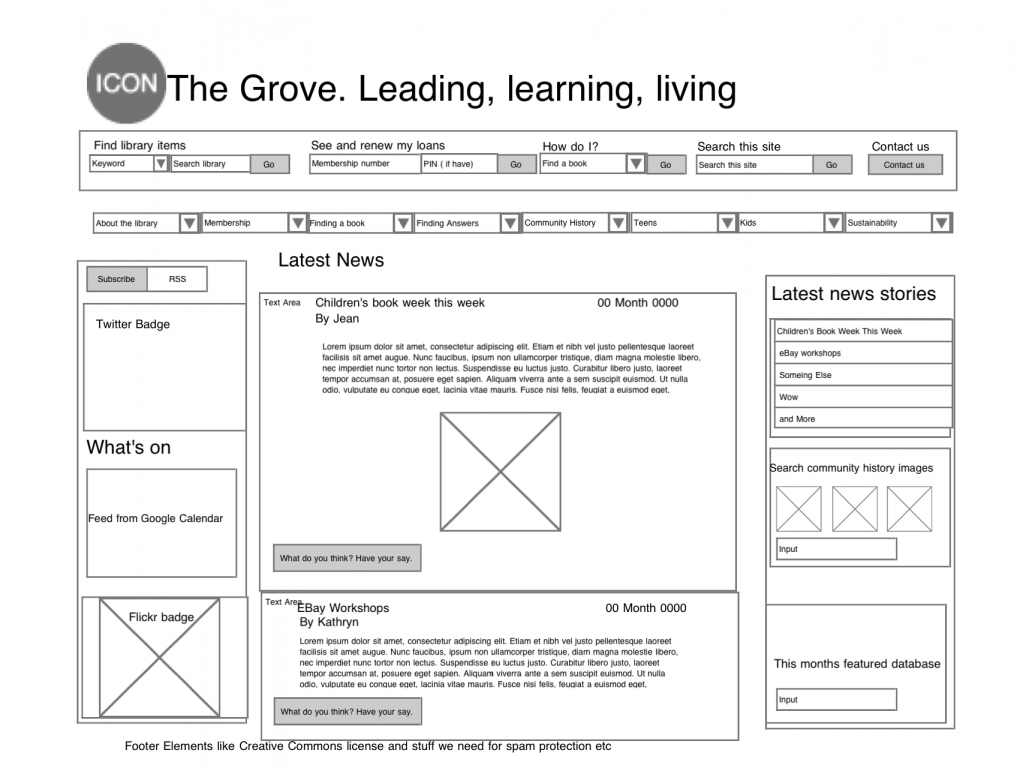With my week of personal posts, I may as well jump straight into something meaty. Con asked to know about
how you learn. How you choose what to learn. How you practise what you learn?
… and no, in answer to your question, it’s not too meta… Kylie also wanted to know about this one.
It’s a bit like asking me how I choose which pocket of air I’m going to breathe next. Ummm… it just finds me and I just do it.
I don’t seem to have moments when I sit down and think “what shall I learn next?”, or “I’d like to know about xyz, I think I’ll go out an find out more about that”. I’m just like a vacuum cleaner sucking up everything that gets in my path – and I seem to find most things fascinating.

Not switching off a lunchtime at LIANZA Nov 2008
The more I read about ADHD the more I think that I am probably a case of ADHD gone right…or rightish. This would put me in some very good company. People with ADHD don’t have problems with paying attention to things, they have problems with modulating their attention. This means that some kids with ADHD can get caught up doing a project for hours and hours without eating dinner – and their parents conclude that they can’t possibly have ADHD because they can pay attention so well. Kids with ADHD may have trouble switching off one channel of information (eg. visual) to pay attention to another (eg. auditory) – classic “oooh , look shiny!!!!!” stuff.
For me, I seem to be paying attention to everything all at once all the time, and I seem to have learned how to modulate this artificially. In maths lessons I used to draw the teacher and my classmates, which took the edge off my desire to pay attention to something else – so it actually helped me focus better on what the teacher was saying about maths. In conferences I take notes and tweet because it takes the edge off my mind that would otherwise be wandering, so helps me pay better attention to the speaker. I seem to need to switch on more than one channel (visual, kinesthetic ) at the same time so I can focus on listening – otherwise my need(?) for stimulation on the other channels makes me go off searching for it, and I lose track of what the speaker is saying.
How does this relate to learning? Well, being immersed in learning is one of the best modulators I have found. I suspect – and correct me if I am wrong – that I have a higher motivation to get into a state of “flow” than other people. This diagram from Wikipedia is a nice encapsulation of where flow sits in relation to relaxation, boredom, worry and control:

Mental state in terms of challenge level and skill level. Released into the public domain by its author, Oliverbeatson
I am very, very lucky in that I don’t get bored. Or really worried too much. But then again, I don’t spend a lot of time relaxing either. Whatever staying still and just being does for other people, being in a state of flow does for me. I used to meditate, which is a great way to still the mind, and I find exercise a really beneficial way to relax. When I look at the chart above, though, I see that theses activities are still in the “High challenge, high skill” sector.
Hey – thanks to your question, I just learned that Mihály Csíkszentmihályi (the main Positive Psychology flow guru) has a concept of the “autotelic personality ” – people with a high level of curiousity and persistence and desire to do things “just because”, rather than external reasons. … maybe that’s me ??
But, that doesn’t answer how I decide what to learn, just that I am highly motivated to be learning all the time. It really does feel like whatever I end up learning just finds me. A common thread in my writing and projects in the last couple of years has been around people organising together outside formal and traditional structures – but I wouldn’t say that I consciously set out to learn as much as I could about this. As to practicing what I learn, again, it seems to just happen. I do like to get out of the abstract and set up a concrete project – but usually one that involves extending my skills and learning as I go, rather than repetitively doing the same task that I have thoroughly mastered.
I don’t know if it answered your question, please let me know if it didn’t.
Post 10 of the 30 posts in 30 days challenge.









